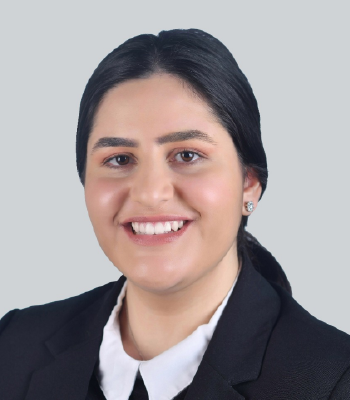
On the path to a sounder world: states, individuals, world leaders, and policymakers face an inconceivable abundance of impenetrable challenges: yet women’s economic empowerment remains one of their greater challenges. Despite the vast benefits gender parity would bring the global economy, developing and advanced countries alike still face major reform needs in this arena. The active participation and inclusion of women in all facets of life are core to properly addressing developmental challenges that states may face.
Amongst other factors, access to justice creates a significant impediment for women reaching similar economic participation rates as their male counterparts. Preventing women from accessing justice allows for the continuation of economic violence, discriminatory incidents, incidents of sexual harassment, further driving women out of the public sphere. This article will attempt to shed some light on the main challenges hindering women from accessing justice and freely obtaining necessary legal services.
Access to justice is defined as the ability of people to seek and obtain a remedy through formal or informal institutions of justice for grievances and in compliance with human rights standards[i]. This principle encompasses more than just improving women’s access to courts or guaranteeing legal representation. It must be defined in terms of ensuring that legal and judicial outcomes are just and equitable.[ii]
In the absence of access to justice, women are especially vulnerable to not being unable to exercise their rights, challenge discrimination, or hold decision-makers accountable. Many factors prevent women from efficiently accessing the justice system, these include lack of awareness with regards to their rights and ability to litigate certain issues, gender bias within the legal system, the financial burdens of court fees and representation and discriminatory laws and regulations.
Women with lower income in Egypt, Iraq, Jordan, Lebanon, and Yemen lack legal knowledge and awareness. In particular, women facing issues concerning alimony, child support or physical and sexual abuse, are not aware of legal measures available that protect their rights and/or are unable to access services in case of rights violation[iii]. Awareness is considered an essential component to accessing justice, the burden of spreading awareness lays on the state, government entities, non-governmental and civil society organisations. All working hand in hand to aid in delivering the essential information regarding their local legal system. An example of this is a campaign launched by the Jordanian National Commission for Women (JNCW) in commemoration of the international advocacy campaign ‘16 Days of Activism Against Gender-Based Violence. The campaign focused on raising awareness on available services delivered by all family protection providers, with a specific focus on legal, psychological, social, and protection aid services for women and children at risk of violence in Jordan.
Add to that; the financial burdens of accessing formal means of justice. This does not necessarily just mean court fees, there are still financial risks that women face during court proceedings, such as legal representation costs and legal expenses to secure evidence and witnesses. The impact of these financial risks is higher on women because of their globally lower level of resources. [iv] The Belgian Institute for the Equality of Women and Men has attempted to resolve this by providing information and resources to survivors of discrimination, including providing mediation between the victim and the perpetrator of discrimination and providing lawyers or cover lawyers’ fees, which can be a huge relief for the survivor allowing her the opportunity to defend her rights to safety. [v]
In addition to the above barriers, many women avoid entering courts and public institutions at all costs; as they experience a great deal of gender bias when dealing with a mostly male-dominated industry. Gender bias occurs when individuals do not adequately account for the experiences of women but rather rely on stereotypical beliefs about women when engaging with them[vi]. For example, asking women to behave in certain stereotypical manners i.e. how ‘normal’ women ought to behave, displaying a lack of understanding towards gender-based violence, and the difficulties women face when experiencing sexual assault and domestic violence, and engaging in victim-blaming. These behaviours can be resolved through gender sensitivity training and awareness sessions with stakeholders such as court employees, lawyers and representatives as well as first responders and any individual or entity that women may seek to access justice.
Finally, one must take notice of discriminatory legislation against women. In many national legal systems; women and girls are often denied equal and appropriate rights concerning family law, property and inheritance rights and employment. Causing women to be more likely than men to have limited access to resources and thus face higher levels of poverty.
Many of the Arab countries’ constitutions for example do not sanctify the principle of gender equality in private or public spheres[vii] which reflects on their national laws and policies, leading to extremely discriminatory legislation and legal practices.
While the issue of gender parity as a whole might seem complex and irrelevant to some, it is essential to recognise the value of women’s economic empowerment and active participation in the economy as a whole. Gender parity must be addressed and without appropriate and accessible justice, reaching this goal is improbable.
[i] “Necessary Condition: Access To Justice”. United States Institute Of Peace, 2021, https://www.usip.org/guiding-principles-stabilization-and-reconstruction-the-web-version/rule-law/access-justice.
[ii] Rule Of Law And Access To Justice. United Nations Development Programme “UNDP”, 2013, p. 16, https://www.undp.org/sites/g/files/zskgke326/files/publications/Rule%20of%20Law%20and%20Access%20to%20Justice%20in%20Eastern%20and%20Southern%20Africa%202013_EN.PDF. Accessed 3 Nov 2021.
[iii] “The Jordanian National Commission For Women Launches The International Advocacy Campaign ‘16 Days Of Activism Against Gender-Based Violence’ Under The Slogan “Together Against Violence””. UN Women | Jordan, 2020, https://jordan.unwomen.org/en/news/stories/2020/november/the-jncw-launches-the-international-advocacy-campaign-16-days-of-activism-against-gbv.
[iv] “The Jordanian National Commission For Women Launches The International Advocacy Campaign ‘16 Days Of Activism Against Gender-Based Violence’ Under The Slogan “Together Against Violence””. UN Women | Jordan, 2020, https://jordan.unwomen.org/en/news/stories/2020/november/the-jncw-launches-the-international-advocacy-campaign-16-days-of-activism-against-gbv.
[v] “Report Of The 3Rd Conference Of The Council Of Europe Network Of National Focal Points On Gender Equality”. Rm.Coe.Int, 2013, https://rm.coe.int/16806a0df8.
[vi] Choudhry, Shazia. WOMEN’S ACCESS TO JUSTICE: A GUIDE FOR LEGAL PRACTITIONERS. Council Of Europe, 2018, https://rm.coe.int/factsheet-womens-access-to-justice/16808ff44e. Accessed 4 Nov 2021.
[vii] ibid
AUTHOUR

Batoul Al-Abdallat is a Trainee Associate at Andersen in Jordan in the Commercial Projects Department, her practice focuses on the areas of Projects, Commercial Law, Legal Compliance, Offshore Incorporations, Contracts and Agreements, and Labour Law Consultations. Prior to joining Andersen, she frequently participated in many international youth forums and programs including NESA UGRAD, YouthSpeak, AIESEC all of which aim to increase representation in the global arena of underrepresented regions and countries. She also has a special interest in Alternative Dispute Resolution and International Commercial Arbitration, she participated in the Willem C. Vis Moot, one of the most prominent International Commercial Arbitration moots and is now coaching the University of Jordan team. Ms. Abdallat was also part of the special projects called National Quality Infrastructure – Funded by the World Bank IFC, Jordan Rule of Law – Funded by UKAid executed by Palladium, Palestinian Refugees from Syria (PRS) – UNRWA. She is also currently pursuing her Innovation & Justice Fellowship with MIJ.


